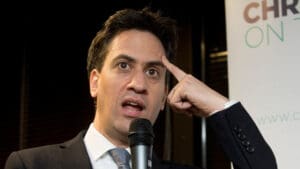Energy Secretary Ed Miliband has suggested the government is considering cutting the 5% rate of VAT on household energy bills, as ministers prepare measures to tackle the deepening cost-of-living crisis ahead of next month’s Budget.
Speaking on the BBC’s Sunday with Laura Kuenssberg, Mr Miliband refused to confirm whether a VAT cut was being actively pursued but acknowledged that households were struggling under high energy costs and that “all of these issues” were under review.
“We face a longstanding cost-of-living crisis that we need to address as a government,” he said. “We also face difficult fiscal circumstances… so obviously we’re looking at all of these issues.”
Labour pledged ahead of the last general election to cut average energy bills by £300 a year by 2030, a commitment Mr Miliband insisted still stands. However, he argued that long-term price stability depends on accelerating the shift away from fossil fuels towards clean, domestically generated energy.
“There is only one route to get bills down — clean, home-grown energy that we control, so we’re not at the behest of petrol states and dictators,” he said.
Scrapping the current 5% VAT rate on domestic energy bills would save the average household around £86 a year, according to Nesta, and cost the Treasury an estimated £2.5bn annually.
Energy prices soared in 2021 following Russia’s invasion of Ukraine and, despite falling from peak levels, remain historically high. Earlier this month, Ofgem increased its price cap by 2%, pushing a typical annual bill to £1,755, up £35 on the previous quarter.
A Treasury spokesperson declined to comment on potential tax changes, stating only: “We do not comment on speculation.”
Chancellor Rachel Reeves has already indicated that “targeted action” on energy bills is being considered ahead of the 26 November Budget. Business Matters understands this could include reducing so-called “policy costs” — regulatory levies that currently account for around 16% of electricity bills and 6% of gas bills, funding green subsidies and social schemes.
The Climate Change Committee has long recommended shifting these charges away from bills and into general taxation to ensure households can feel the financial benefits of the net-zero transition more directly.
Mr Miliband acknowledged the debate, saying: “That’s always a judgement for the chancellor… but we know we’ve inherited difficult fiscal circumstances.” He added that infrastructure upgrades require ongoing investment, meaning a “balance” must be struck between public expenditure and consumer levies.
The issue of energy affordability has become a major political battleground, with the Conservatives and Reform UK arguing that net-zero policies have inflated costs.
The Conservatives have pledged to scrap the Climate Change Act and remove carbon taxes on electricity generation, while Reform has proposed rolling back renewables incentives. Shadow energy secretary Claire Coutinho claimed such measures could reduce bills by 20%.
By contrast, the Liberal Democrats accused both parties of promoting fossil fuel dependency, arguing that energy security depends on cleaner domestic generation. Pippa Heylings, the party’s energy spokeswoman, called for the decoupling of electricity prices from gas markets, saying: “People aren’t seeing the benefit of cheap renewable power.”
Green Party leader Zack Polanski reiterated his party’s call to nationalise energy companies and introduce a tax on carbon emissions to drive investment into green infrastructure. He rejected claims that businesses would pass on the costs, insisting the policy would target large corporations rather than SMEs.
With household energy bills still elevated and winter approaching, expectations are mounting for a significant intervention in the November Budget. Whether the government opts for a VAT cut, levy reform, targeted subsidies or accelerated clean energy investment, the political stakes are high as affordability and energy security continue to dominate public concern.
Read more:
Ed Miliband signals potential VAT cut on energy bills as affordability pressures grow
















